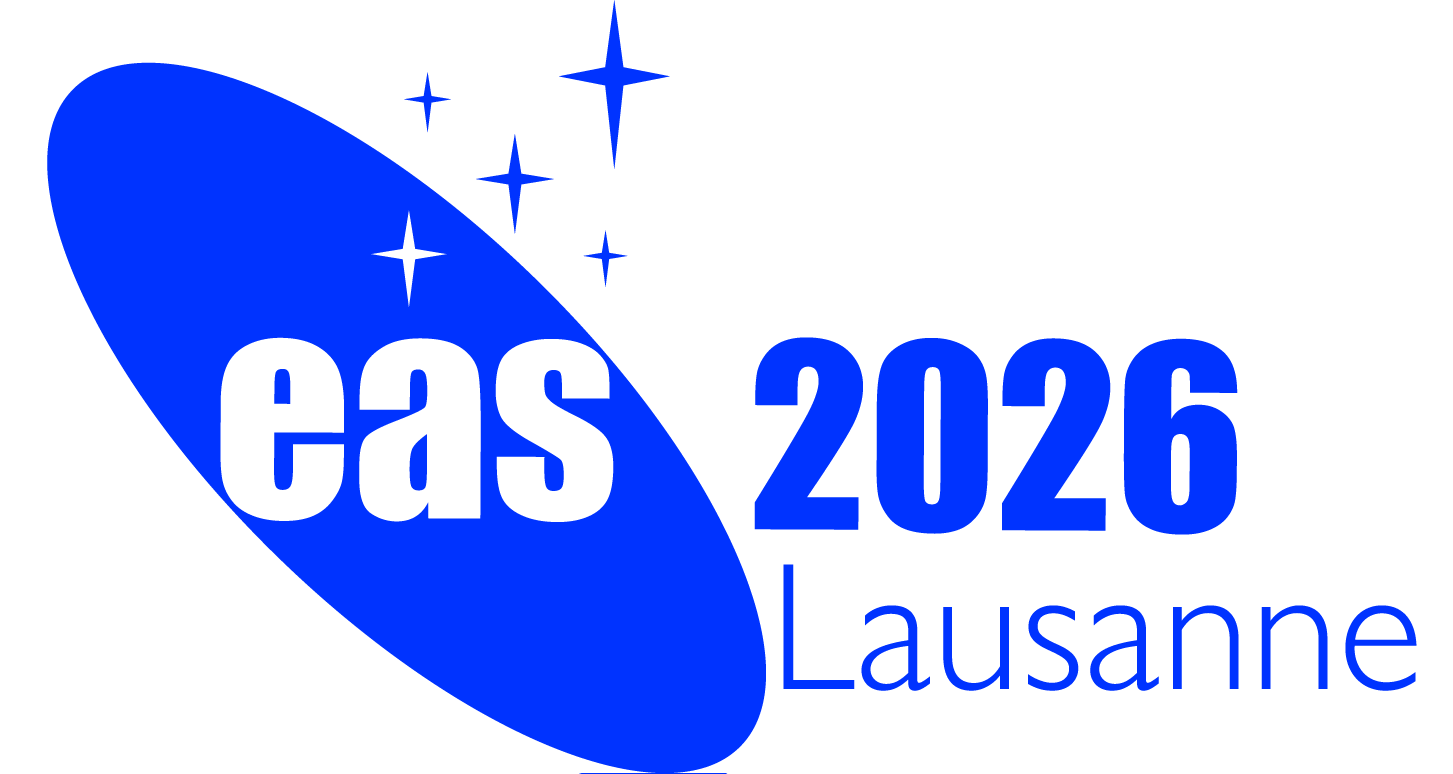
|
European Astronomical Society
|

|
|
|
|
|
|
EAS Job Directory
Find Jobs
| PhD student position in Star formation with machine learning at the University of Geneva | Closing date: 2025-11-30
Contact: Marc Audard |
We are looking for a candidate for a PhD position at the Department of Astronomy of the University of Geneva in the context of the newly funded Swiss National Science Foundation project "STARforM-Lens: Accretion in star formation through the lens of machine learning".
| | ▸ more | The star formation group at the University of Geneva, led by Dr Marc Audard, has an opening for a PhD position to work on the newly funded
project "STARforM-Lens: Accretion in star formation through the lens of machine learning, which aims to study star formation and its accretion across time with innovative machine learning techniques. The project aims to use the wealth of Gaia multimodal data (photometry, spectroscopy, radial velocities, astrometry, and time variability) together with complementary all-sky survey data at different wavelengths. The project will employ two distinct ML techniques: the first one aimed to scrutinise the long-term evolution of YSO accretion by boosting a very large database of panchromatic spectral energy distributions (SEDs) for young stellar objects with Gaia spectra, while the second technique will focus on the short-term accretion variability by modeling the heterogeneous data using a shared latent space.
The PhD student is expected to focus on the second technique, while collaborating on the other technique with a postdoc in Geneva and with the international team composed of Dr Kai Polsterer at the Heidelberg Institute for Theoretical Studies (HITS) in Germany and Dr Gabor Marton at Konkoly Observatory / CSFK in Hungary. Several secondments (typically a month per year) at HITS are planned. A taste and skills in astronomy and astrophysics, data science, and/or machine learning are required, together with the ability to work in small, international teams. The PhD student will furthermore have the opportunity to be integrated in the Coordination Unit 7 of the Gaia Data Processing and Analysis Consortium toward the final release DR5 planned for 2030.
The Department of Astronomy at the University of Geneva offers a modern and vibrant working environment, with a wide range of activities including theory, numerical simulations, observations and instrumental developments in the fields of exoplanets, stellar physics, galactic dynamics, observational cosmology, and high-energy astrophysics.
Applications are invited from candidates with a solid background in physics or astronomy and should consist of a cover letter explaining the motivation for seeking a PhD in astrophysics and especially the aforementioned research fields, a statement outlining any research experience so far (<1 page each), a CV, and a copy of the Bachelor and Master academic record (exams, theses, and grades). Candidates should also provide names and e-mail addresses of at least two references. Applications should be sent as a single PDF file to marc.audard @ unige.ch.
The position is for 4 years, contingent upon satisfactory performance, mutual agreement, and approval by the PhD committee; remuneration is based on the University salary grid (Canton of Geneva). Generous funds for travel and computer equipment are included. The selected Ph.D. student will enroll in the Ph.D. programme of the Department and University (UniGE).
Complete applications received by 30 November 2025 will receive full consideration, but the search will remain open until the positions are filled. Start date is negotiable. Preliminary inquiries may be addressed via e-mail to marc.audard @ unige.ch.
|
More resources
Links to other job lists
|

